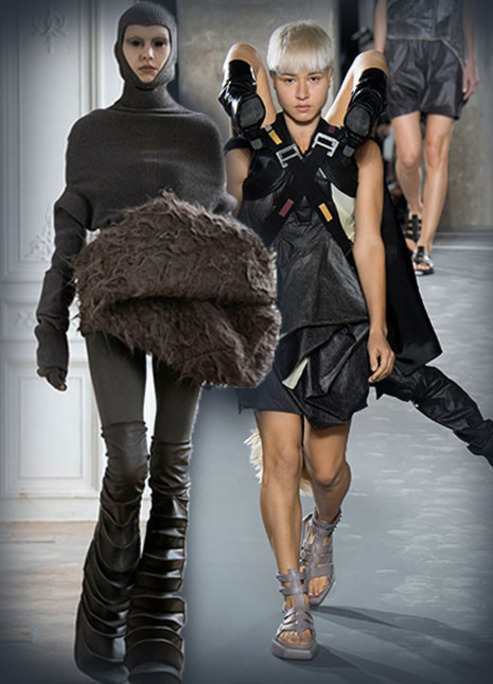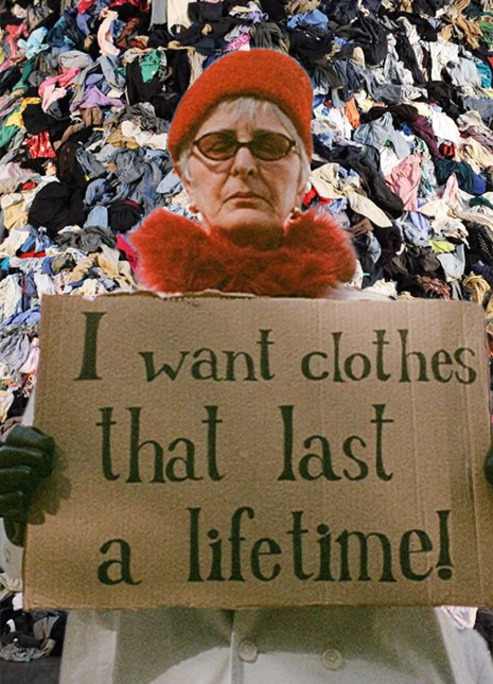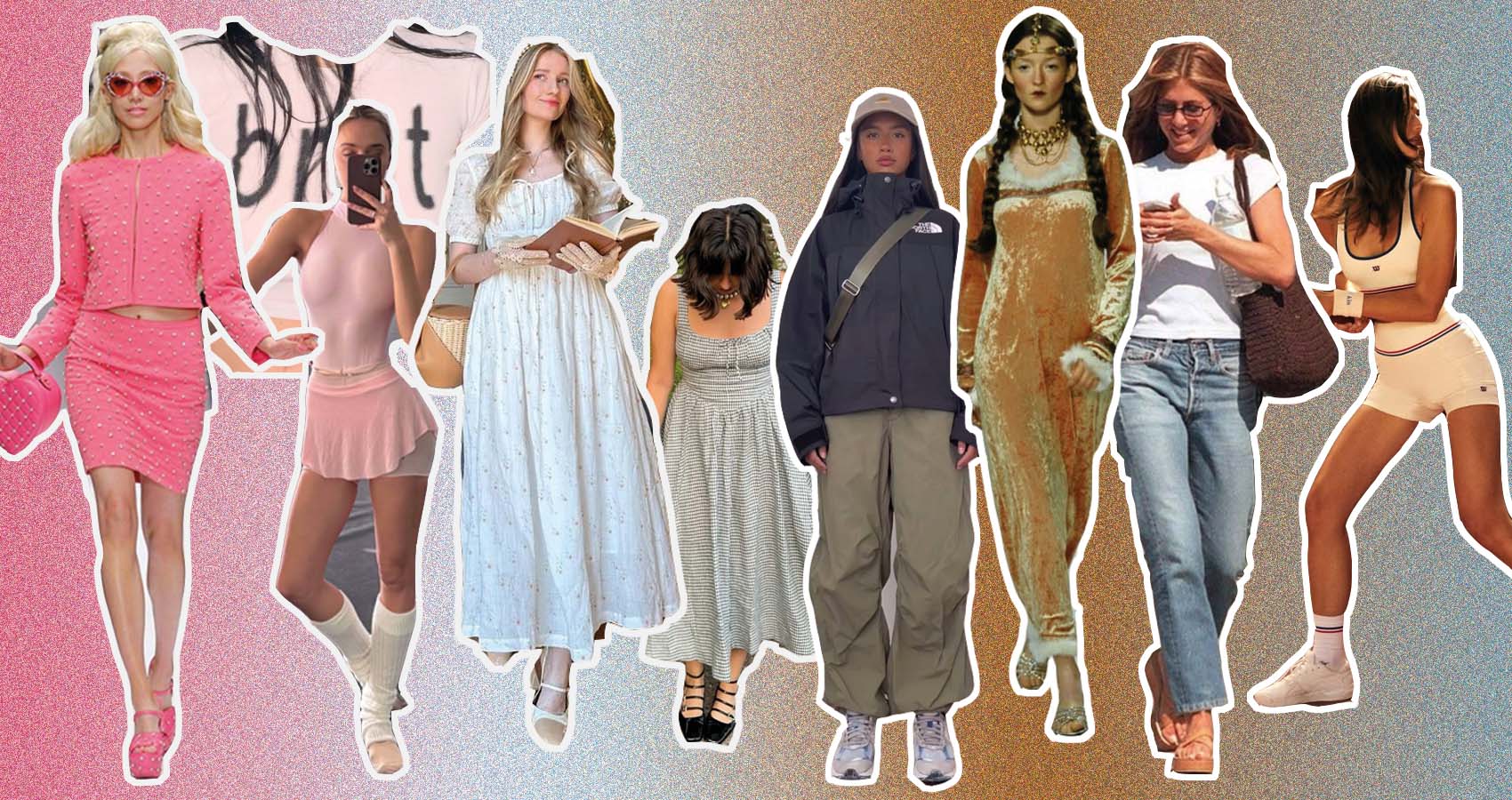
Bye-Bye Core: France Says "No" to the Trendy Suffix "Core"
But what is the broader impact?
The suffix that has come to grace so many trends that have gone viral on TikTok, from Ballet Core to Barbie Core, is no stranger to the fashion world. But it seems the infamous Anglicism ‘‘core’’ is not only growing to irritate those who are sick of the current obsession with niche aesthetics — France has had enough, too.
Earlier this month, the Commission d'enrichissement de la langue française (CELF) and the Association pour la promotion du français dans la mode urged French speaking people to abandon the use of the term.
The Rise of "Core" Trends
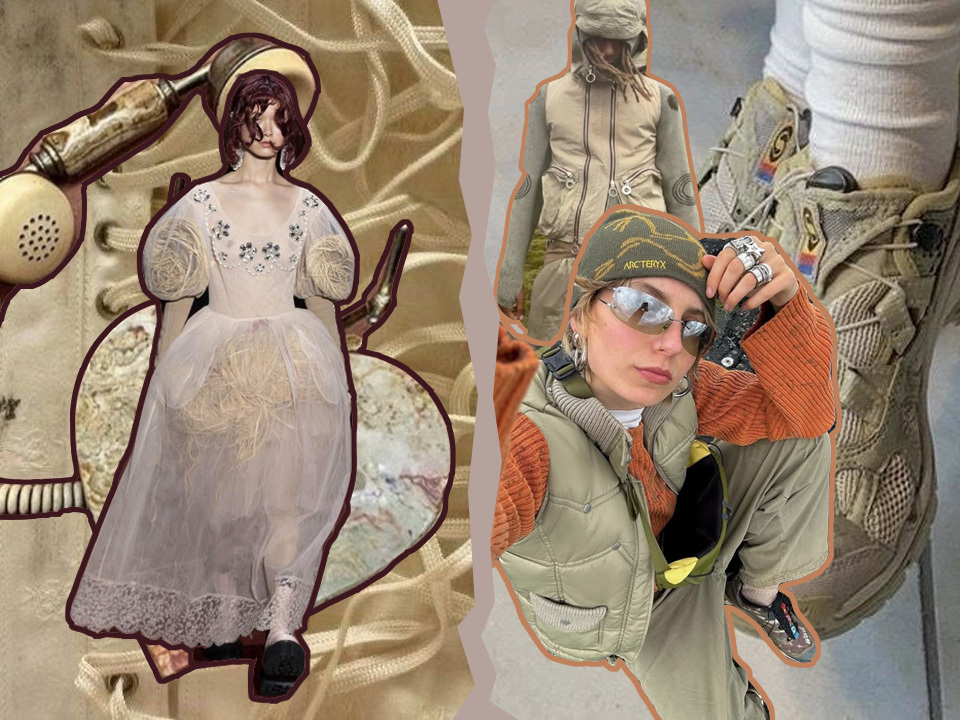
The ‘‘core’’ concept first arose in 2013, when the Norm Core term was introduced by trend forecasters at K-Hole. Following years saw the rise of the defiantly ugly utilitarian wardrobe of Gorp Core and the royal, pompous Regency Core pushed by Netflix’s Bridgerton. From there, the suffix sparked an excessive categorization of aesthetics — think Barbie Core, Ballet Core, Grandpa Core, Cottage Core, Tennis Core, Corp Core and so on.
A Shift to "Style"
But now the Commission d'enrichissement de la langue française (CELF) encourages the use of the word style, derived from the Latin ‘‘stilus’’ and Old French ‘‘stile’’, when referring to a style of dress and, thus, a lifestyle inspired by a particular vision — hence Barbie style and Corp style to name a few. As France attempts to reassert its language in fashion, what are the broader implications of this linguistic shift?
France’s Cultural Commitment to Fashion
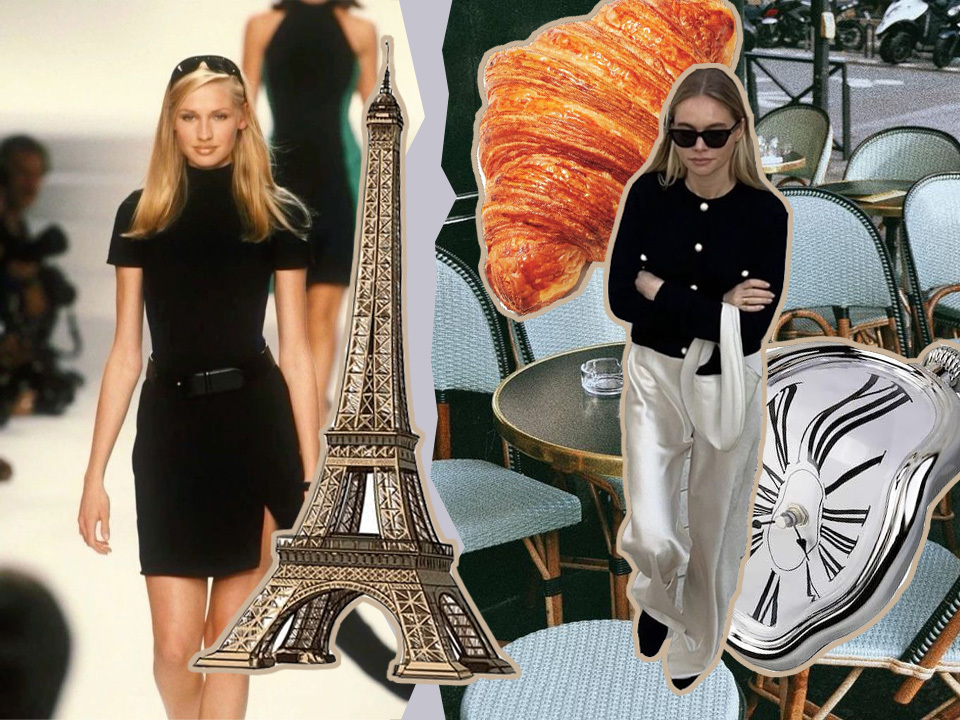
‘‘The French care very much about protecting their culture,’’ says Katherine Sinner, a fashion journalist and stylist based in Paris for over five years. From their long heritage as couturiers to the much-cherished Paris Fashion Week that closes each fashion season, the country's strong national identity is very much tied to fashion. Since style aligns with this cultural commitment and is a much more traditional word — something that Sinner has noticed French officials value a lot —, it's not surprising it's their term of choice.
The Timeless Appeal of "Style"
‘‘Style has been used for centuries to talk about the way people dress, says Rebecca Leigh, an educator and linguistics expert, noting the term’s polished, classic, and timeless appeal. Considered the opposite of fashion, style dates back to the early 16th century — then as ‘‘stilus’’ —and stands for one's enduring individual expression through clothing. ‘‘Core is much newer and comes from internet culture,’’ adds Leigh.
The Ephemeral Nature of "Core"
As hyper-specific, niche Internet aesthetics, ‘‘core’’ centers on trends that, in the modern age, are forgotten a month after being coined. “Barbiecore immediately brings to mind a specific ultra-pink and exaggerated look inspired by social media and pop culture moments,” the educator illustrates — and it's worth pointing out that after Greta Gerwig's film, Mattel's doll aesthetic disappeared from mainstream media as people moved on to something else. Given its ephemeral nature and relatively recent online origin, ‘‘core’’ defies France's more conventional approach.
"Style" vs. "Core": A Matter of Flexibility
While ‘‘core’’ and style are not exactly synonymous, Noah, a fashion fan behind the X account @pradachurch, believes that swapping the internet jargon for style still makes the trend name understandable. ‘‘Style is timeless but one can just switch out brat core with style (brat style) and I'd receive it as the same thing in the end,’’ the fashion enthusiast explains.
Mathias Amodu, an IELTS instructor, agrees. ‘‘In broad terms, both can describe fashion trends,’’ he says. While Amodu believes that both categorize fashion movements, he argues that they do so in different ways since they involve distinctive origins and contexts.
The Flexibility of "Core"

As a perfect term for viral fashion movements, ‘‘core’’ 'doesn’t always ‘‘require historical or cultural continuity like style,’’ explains Amodu. ‘‘It’s super flexible,’’ Leigh agrees, adding that the internet jargon ‘‘can be slapped onto almost anything to create a new trend.’’ From sultry office-wear Corpcore to a more Dark Age, quirky look of Medieval Weird Core, she considers the term great for capturing a specific vibe. But simultaneously, both linguistics professionals find that ‘‘core’’ trends are so rigidly defined that they can be oddly strict.
The Pressure to Conform to "Core" Trends
But not only that. In the current fashion scenario, ''core'' trends also reveal the pressure to constantly conform. ‘‘We see many of the big houses engaging with micro trends more than ever just to stay on top or to survive in this unstable economic climate,’’ Noah shares a valid concern for many fashion fans. Strongly driven by social media and its trends, brands and people have seemingly lost the idea of identity. ‘‘We all want longevity and pure creativity back but most of us, including myself, are guilty of engaging with the social media trend speed,’ Noah says poignantly.
A Potential Shift in the Fashion Landscape
Ditching the internet jargon could mean fewer micro, ultra-niche aesthetics that fade a few days after their creations, which could mean the return of a slower-paced environment. But it also shows a possible risk for the future of fashion.
France’s Effort to Protect Its Language
While France has always been at the forefront of fashion, the resurgence of French-centric terminology within the industry reveals more than the country's ongoing efforts to protect its language. Sinner believes that France's insistence on maintaining tradition can end up leaving it behind, or worse, excluding other cultures. By wanting to remove the suffix "core" from the lexicon of its population, CELF is also making fashion less English and more French.
Concerns Over Fashion’s Future
And in an era that watches a wave of conservatism, manipulation and control, this move raises some concerns. ‘‘It's crazy to think that an institution can dictate how we refer to style,’’ comments the Paris-based journalist and stylist.
The Enduring Popularity of "Core"
Since the term is used mostly by younger generations, people who work in fashion, and those who have access to online platforms like TikTok, it's hard to imagine it ever going away. As Amodu puts it, ‘’enforcing style over core might be an uphill battle.” But not nearly impossible.




